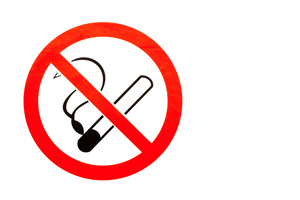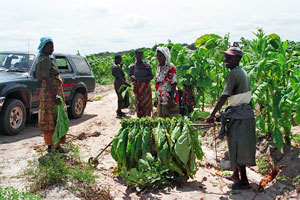In the face of declining revenues, most of Malawi’s tobacco growers are ‘slowly abandoning’ the crop in favor of others, such as soya beans, sorghum, and groundnuts’, according to a story in The Nyasa Times.
The switch out of tobacco was described as a survival mechanism.
Malawi has for decades relied on its annual tobacco income to run its economy, and the government is said still to be ‘glued’ to it. Officials have indicated several times that Malawi will continue to grow the crop.
This is even though figures from the Tobacco Control Commission (TCC) show that tobacco revenue has, since 2010, declined by a third in dollar terms from $410 million to $275 million this year.
And this is even though most prominent tobacco growers, including members of the Tobacco Association of Malawi (TAMA), are now said to be backing off from the crop.
In a Times interview, TAMA CEO Mathews Zulu confirmed that a number of TAMA members were backing off from the crop in the face of declining tobacco-grower revenues during the past five years.
Zulu said even TAMA had a diversification plan that was looking at ensuring its own survival in response to demands from its members to grow other crops.
He said that so far three out of the 49 co-operatives under TAMA had signed contracts with Chibuku Products Limited to start growing sorghum beginning this year.
“Apart from sorghum, we are also looking into crops such as soy beans, sunflower, groundnuts and other commercial crops that tobacco farmers who are our members are now growing,” he said. “In this new strategy, we want to go towards contract marketing so that farmers should be producing for the market and not producing before they identify the market.”
One of the major tobacco buyers in the country, Alliance One Tobacco Company, was said to have announced recently that it was diversifying its operation by growing legumes in Dowa, one of the districts that is traditionally known for growing tobacco.
Alliance MD Hugh Saunders said the diversification initiative was a response to the pressure that was threatening the future of tobacco, especially Burley.
An economics professor at the University of Malawi’s constituent Chancellor College Ben Kaluwa said the move by TAMA was a wake-up call to the government and other tobacco stakeholders.
“Over the past years, tobacco has not been performing well in terms of revenue, and coupled with the global anti-smoking lobby, the future does not look good,” he said.










